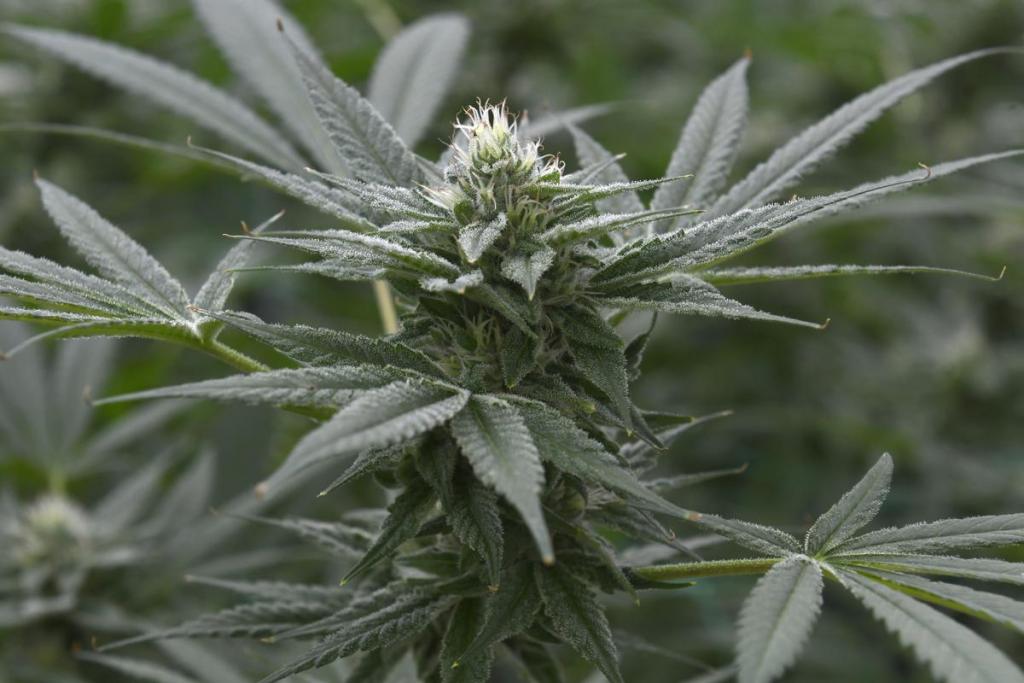“It’s been a painful lesson that it’s much harder to pare back than it is to loosen things up.”
The statement made by 3rd District Supervisor Joan Hartmann on Tuesday summed up the supervisors’ months-long struggle to reform the county cannabis ordinances after they were criticized for being too relaxed. At their height, licenses in Santa Barbara County accounted for 35 percent of all cannabis acreage in California.
The board voted to implement new restrictions affecting North County — the harshest is a total ban on commercial pot grows in areas zoned as existing developed rural neighborhoods (EDRNs). The move was controversial and preceded by dozens of growers and residents from Tepusquet Canyon, an EDRN in North County, who either begged the board to adopt the ban or to reject it.
“After making my leap into the industry, I never looked back,” Luis Gonzalez said. “For 12 years I have completely devoted my life to producing the highest quality cannabis in the place that I have considered my backyard, the Tepusquet mountains … . We have the natural barrier of mountain ranges in between any other neighbor. We believe it is the safest place to grow cannabis.”
Get the top stories in your inbox by signing up for our daily newsletter, Indy Today.
Many growers, including Gonzalez, said the new limits would be devastating for them financially. Others also said that the rural area is perfect for growing cannabis and that they feel the decision to further restrict it is being made based on political pressure or fears of lawsuits.
“I don’t think people are coming together as a result of more restrictions,” 1st District Supervisor Das Williams said, though he ultimately voted to adopt the ban. “I don’t see the point in embracing restrictions when all I see in results are more lawsuits, vitriol, hate, and more rumor, gossip, and innuendo.”
Public comment grew more heated when Tepusquet Canyon neighbors slipped snide remarks into their comments, calling each other names like “NIMBYs,” “busybodies,” and “liar” when describing conflicts between growers and surrounding neighbors. For those opposed to the grows in their neighborhoods, increased traffic has become a central complaint after issues with odor.
“There is obviously a problem with traffic on Tepusquet Road. It can’t support vehicles making 249 trips in 10 days over substandard roads,” said Renée O’Neill, a resident who has pushed in major neighborhood efforts for stricter cannabis reform. O’Neill presented a slideshow to demonstrate the traffic issues.
“The growers have created multiple problems in our community, and this is why there is so much contention,” she continued. “The conflict between neighbors and growers has escalated as a result of the escalated, illegal, noncompliant, massive expansion of industrial operations in our small, rural community.”
Aside from the cannabis ban in rural neighborhoods, the County Planning Commission proposed three other ordinance amendments. One amendment suggested more stringent permits for future North County cannabis grows called conditional-use permits, or CUPs, for cannabis cultivation that spreads over more than 50 percent of the property. Supervisor Hartmann quickly pointed out that it wouldn’t apply in her district.
“Unfortunately this does nothing in our prime Sta. Rita hills,” Hartmann said. “Of the 19 projects proposed there involving about 720 acres, not one would involve cultivation of over 50 percent of the parcel. So not one would require a CUP.”
Hartmann pointed out that without a CUP, the properties wouldn’t be required to have odor-control technology. She said the smell of cannabis in the area is “pervasive,” so she asked the board to consider lowering the threshold for requiring CUPS to grows larger than 20 acres.
“I am here in my final plea to ask you to reconsider before making the Santa Ynez Valley and the Sta. Rita Hills area a sacrifice area,” she said to her fellow supervisors. Her plea did not gain traction, as the supervisors voted to adopt all four of the amendments as staff presented. She was the only dissenter.
The other two amendments adopted at the hearing require a 50-foot setback from cannabis cultivation areas to all surrounding lot lines and that all cannabis processing and drying be located within an enclosed building that utilizes best available odor-blocking technology.
The vote for the ordinance amendments came at the final of three hearings on the Planning Commission’s amendment recommendations. Though further amendments will be made in the future, it is clear to supervisors that no matter what they choose, they will not make every constituent happy.
“I understand everyone has strong opinions about this and that the public has very strong opinions about this and they are diverse and different and hard to reconcile,” 2nd District Supervisor Gregg Hart said. “We’re making progress. Not to the degree that many, everyone would like to see, and probably too much for other people.”
Every day, the staff of the Santa Barbara Independent works hard to sort out truth from rumor and keep you informed of what’s happening across the entire Santa Barbara community. Now there’s a way to directly enable these efforts. Support the Independent by making a direct contribution or with a subscription to Indy+.

